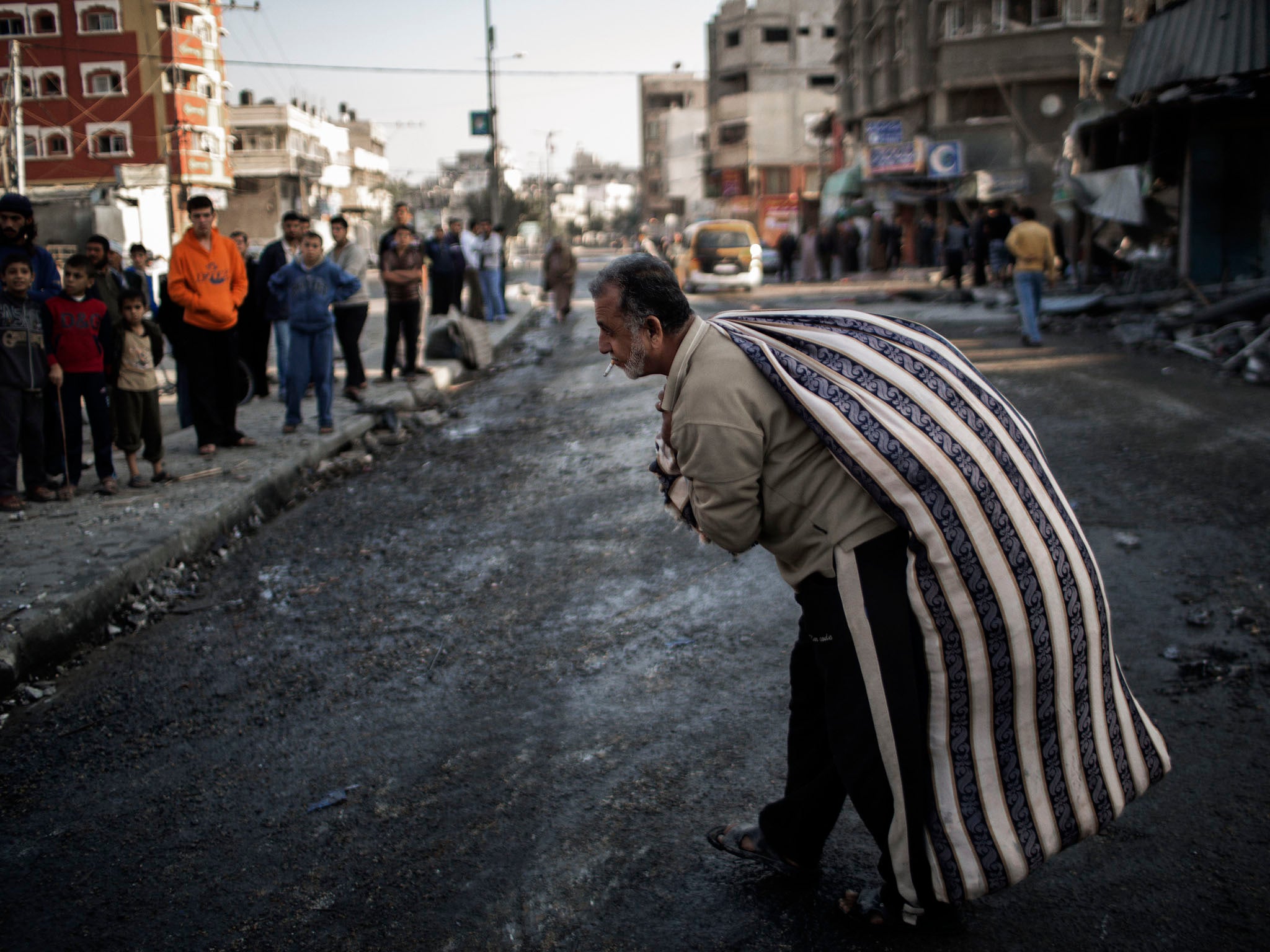In Gaza, line between militants and population is thin

Your support helps us to tell the story
From reproductive rights to climate change to Big Tech, The Independent is on the ground when the story is developing. Whether it's investigating the financials of Elon Musk's pro-Trump PAC or producing our latest documentary, 'The A Word', which shines a light on the American women fighting for reproductive rights, we know how important it is to parse out the facts from the messaging.
At such a critical moment in US history, we need reporters on the ground. Your donation allows us to keep sending journalists to speak to both sides of the story.
The Independent is trusted by Americans across the entire political spectrum. And unlike many other quality news outlets, we choose not to lock Americans out of our reporting and analysis with paywalls. We believe quality journalism should be available to everyone, paid for by those who can afford it.
Your support makes all the difference.No place is safe.
That is what the relatives of Amin Zohdi Bashir and Tamer Rushdi Bashir said as they buried two cousins on Monday.
They were killed Monday morning in a thundering flash of light that left their car in flames, and streaks of tomatoes smashed across the roadside. Relatives said the men were farmers who had nothing to do with the dozens of rockets that militants in Gaza lobbed toward Israel on Monday.
Israel said the men were terrorists who were deliberately targeted.
But the line between Hamas — the Islamist group that governs the Gaza Strip — and the general population in a densely packed territory of 1.7 million is hopelessly thin.
Over the weekend, Israel warned civilians, including journalists, to stay away from Hamas, or risk being killed. Many Gazans said that is fundamentally impossible in a place where nearly everyone has a neighbor or a relative with links to Hamas, a group that Israel and the United States consider a terrorist organization.
Hamas is thoroughly embedded in society here. The organization has a powerful militant wing that is committed to fighting Israel. But its members also populate the police force, the customs office and government ministries. The group won legislative elections here in 2006, and it has hundreds of thousands of rank-and-file supporters. Hamas also runs an extensive network of social services, including schools and health clinics.
Buildings that Israel labels "terror sites" are what Hamas calls government infrastructure. Some of the young men who farm the fields by day take to the streets at night to fire off rockets.
As ambulances roared into al-Shifa Hospital on Monday, Hamas police and Interior Ministry officials gathered in the parking lot and milled about the hallways. At funerals, the crowds are filled with Hamas backers, as well as members of other factions with armed wings, such as Islamic Jihad and the Popular Front for the Liberation of Palestine.
"All the people are in Hamas, Fatah and the factions," said Kamal al-Dalou, as his relatives were buried in Gaza City on Monday. These groups are the fabric of the Gaza Strip, he said.
Nine members of the Dalou family, including four children, were killed in an airstrike on their home Sunday. Kamal Dalou said his relatives were not militants. But the Israel Defense Forces said a terrorist was thought to have been hiding in their home.
Now, other relatives are ready to pick up arms. Dalou said family members will fight back if Israeli troops begin a ground invasion. "We're ready for them. We don't want war, but we'll protect ourselves and we will fight them," he said.
Explosions sounded throughout the strip on Monday, keeping shops shuttered and most residents indoors. Kafah Thaer, 17, was rushed to an emergency room screaming — "psychic trauma," the doctors said — after her neighbor's house was pulverized by an Israeli F-16.
But even as civilian casualties and fears of a ground offensive rose on Monday, many said the Israeli offensive had done little to hurt the reputations of Hamas, Islamic Jihad and other militant groups that continue to fire rockets into Israel.
"Why would I be upset? Shouldn't they fight? This is our land," said Abdul Aziz Bashir, an elderly relative of the cousins in Deir al-Balah, a town in central Gaza.
"The resistance," he said, is what ended the Israeli occupation of Gaza in 2005, and what prevents the Israelis from coming back. Hamas and the other fighters serve a purpose, he said.
Israel says the militants also have prompted its crippling blockade on the coastal enclave, as well as a military offensive in the winter of 2008-2009 that killed about 1,400 Palestinians.
Much of Gaza's infrastructure was reduced to rubble during that conflict, and now the territory is being pummeled again.
At the cemetery in Gaza City on Monday, an old man sobbed uncontrollably as the bloodied bodies of Ranin al-Dalou, 5, and Jamal al-Dalou, 7 — both wrapped in the Palestinian flag — were hoisted above the crowd and then into the earth.
"We are used to this," Abdel Muala Salama, 70, said as he watched.
Just then came the whoosh of Israel-bound rockets, fired from nearby. The task of mourning the dead was momentarily put aside, and a cry of "God is great!" resounded among the gravestones.
---
Ernesto Londono in Tel Aviv contributed to this report.
Join our commenting forum
Join thought-provoking conversations, follow other Independent readers and see their replies
Comments